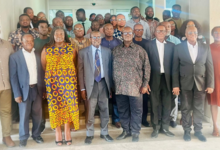UER records 27 maternal deaths between January and October this year

The Upper East Region between January and October, this year, has recorded 27 maternal deaths.
A Senior Nursing Officer with the Reproductive Health and Child Unit of the Ghana Health Service (GHS), Mr Gilbert Agulu, made the disclosure when he gave a situational report on adolescent and teenage pregnancy rate in the region, amidst COVID-19, on behalf of the Regional Adolescent Focal Person, Ms Dora Kulariba, in Bolgatanga on Monday.
She gave the breakdown of the maternal deaths as Bawku Municipal, 11; Bolgatanga Municipal, seven; Kassena-Nankana Municipal, four; Bongo District, two; Bawku West District, one and Tempani District two.
Ms Kulariba attributed the high maternal death rates in the region this year to the outbreak of the coronavirus disease (COVID-19).
She explained that as a result of the pandemic, many people, particularly pregnant women, refused to attend health facilities to seek medical and maternal health care for fear of contracting the disease and its associated stigmatisation.
“All because they fear that they could be tagged as COVID-19 victims. The pandemic also accounted for the high teenage pregnancies in the region. This is because, as health workers, we could no longer embark on health education and promotion activities such as community durbars,” she said.
Ms Kulariba said as part of measures to help address the problems, the GHS has constituted family planning technical working group meeting, training of health staff on adolescent health, creation of adolescent corners in health facilities as well as conducting field monitoring and supervisions.
She gave the assurance that the GHS would continue to collaborate with other stakeholders such as religious and traditional leaders to embark on health education on the prevention of teenage pregnancies in communities as well as work with other departments and organisations to curb teenage pregnancy
The Upper East Regional Population Officer, Mr Alosibah Akare Azam, explained that the issue of maternal health and teenage pregnancy were major developmental challenge which need all stakeholders support to fight the problem.
He stressed that it was based on this fact that National Population Council (NPC) decided to engage the stakeholders to complement government’s efforts at tackling the issue and appealed to religious and traditional leaders and civil society to double up their efforts in the fight.
Those who attended the forum included staff of the Ghana Education Service (GES), Ghana Health Service (GHS), Department of Gender, faith based organisations, Youth Harvest Foundation, the media and other civil society organisations.
FROM SAMUEL AKAPULE, BOLGATANGA





